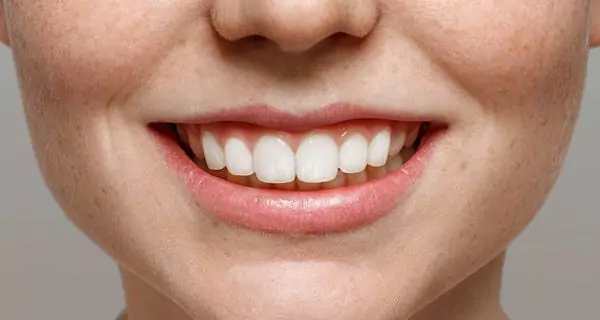Last Updated on: 19th September 2025, 12:30 pm
A plant-based diet can improve oral health by reducing the risk of gum disease and tooth decay due to its high intake of antioxidants, vitamins, and fiber. However, it may also pose risks like enamel erosion or nutrient deficiencies if not properly balanced. Maintaining good oral hygiene and consulting with healthcare professionals helps maximize benefits while minimizing risks.
A plant-based diet is more than a trend; it’s a lifestyle. More and more people are adopting it due to health, ethical, or environmental reasons. In the United States, approximately 5% of adults identify as vegetarians, with an additional 3% following a vegan diet.
We know that a plant-based diet brings plenty of benefits, from lowering the risk of heart disease to helping the planet. But, what happens with our oral health?
Yes, one’s diet plays a key role in oral health, too. In this guide, we’ll walk you through the ways a plant-based diet can impact your mouth (for better or worse) and how to make smart choices that will keep your teeth and gums healthy.
What exactly is a plant-based diet?
Its simple plant-based diet centers around foods that come from plants: vegetables, fruits, legumes (like beans and lentils), nuts, seeds, and whole grains. It minimizes or eliminates animal products such as meat and fish and derivatives like honey, eggs or dairy.
The term itself is flexible and includes several dietary patterns:
- Vegetarian: No meat or fish, but may include dairy, honey, and eggs.
- Vegan: No animal products at all, not even honey, gelatin, or cheese.
- Flexitarian: Mostly plant-based, but occasionally includes small amounts of meat or fish.
Each version offers different nutritional profiles. While they all share a common focus on plants, the stricter the diet, the more important it becomes to plan thoughtfully, especially when it comes to oral care.
How Does a Plant-Based Diet Benefit Oral Health?
When thoughtfully planned, a plant-based diet can offer powerful benefits for oral health. Here are the top ways a plant-focused diet supports the mouth:
Supports gum health
Plant foods are rich in antioxidants and anti-inflammatory compounds that help reduce gum inflammation, lowering the risk of gingivitis and periodontitis.
Encourages saliva production
Many fruits and vegetables (like apples, cucumbers, celery, and melons) are high in water content and fiber, which naturally stimulate saliva, a crucial defense against bacteria and acid buildup.
Reduces sugar intake
Vegetarian and vegan diets often limit processed foods, resulting in less added sugar. Since sugar feeds cavity-causing bacteria, this helps reduce the risk of tooth decay.
Strengthens tooth enamel
Plant-based diets include foods high in minerals like calcium and phosphorus (found in leafy greens, tofu, seeds, and nuts), which are essential for maintaining strong enamel.
Improves oral microbiome balance
The fiber in fruits, vegetables, legumes, and whole grains feeds beneficial bacteria in your mouth, helping to keep harmful microbes under control and improving breath.
Naturally cleans teeth
Crunchy, fibrous foods like carrots, apples, and raw spinach act as natural toothbrushes by gently scrubbing teeth and removing plaque as you chew.
Promotes healthy pH levels
Many plant-based foods are alkaline-forming, which helps balance the pH in your mouth. This reduces acidity that can weaken enamel and lead to decay.
Delivers key vitamins for oral health
Plant-based diets are rich in vitamins like:
- Vitamin C: supports gum tissue and collagen production (found in bell peppers, citrus, strawberries).
- Vitamin E: helps combat inflammation (found in nuts, seeds, and vegetable oils).
A plant-based diet offers multiple protective benefits for your teeth and gums. When combined with proper hygiene and good nutrient planning, it can help maintain a healthy smile.
What Are the Potential Oral Health Challenges of a Plant-Based Diet?
Some key nutrients essential for maintaining strong teeth and healthy gums are found mostly in animal products. When these nutrients are lacking, specific oral health issues may arise over time.
Here are the most common challenges to watch out for:
How Does Vitamin B12 Deficiency Affect Oral Health on a Plant-Based Diet?
Vitamin B12 is crucial for nerve function and cell health, including the tissues in your mouth. Since it’s naturally found only in animal products, those following a plant-based diet are at a higher risk of a deficiency.
Oral Symptoms:
- mouth sores or canker sores
- burning or tingling sensation in the mouth
- swollen or red tongue
- fatigue or weakness
In more severe cases, a lack of B12 has been linked to conditions like burning mouth syndrome, a chronic discomfort that affects taste and causes a persistent burning feeling.
How Do Low Calcium and Vitamin D Levels Impact Oral Health on a Plant-Based Diet?
Calcium is essential for strong teeth and bones, while vitamin D helps your body absorb and use calcium effectively. In diets without dairy or when sunlight exposure is limited, it’s easy to fall short on both.
Potential oral health effects:
- weakened enamel
- increased risk of cavities
- greater chance of gum disease
- delayed healing after dental treatments
How Do Iron and Zinc Deficiencies Affect Oral Health on a Plant-Based Diet?
Iron and zinc are vital for tissue repair, immune defense, and healing, especially in the mouth.
Low levels of these minerals may lead to:
- sore or bleeding gums
- pale or painful tongue
- slow healing from oral wounds or after procedures
How Does Omega-3 Deficiency Affect Oral Health on a Plant-Based Diet?
Omega-3 fatty acids are known for their anti-inflammatory properties, which benefit both the heart and the gums. Since they’re mostly found in fish, vegans and vegetarians who don’t supplement may be at risk.
What this can lead to:
- increased gum inflammation
- greater risk of developing or worsening gingivitis or periodontitis
How Can Excessive Acidic or Sticky Foods Impact Oral Health on a Plant-Based Diet?
Even healthy plant-based foods can be tough on your teeth if eaten too frequently or without precautions:
- Citrus fruits and juices are highly acidic and can erode enamel over time.
- Dried fruits, like raisins or dates, are rich in natural sugars and tend to stick in the grooves of teeth, feeding bacteria and increasing the risk of decay.
Pro tip: Eat dried fruits as part of a meal, not as a snack, and rinse your mouth with water afterward to reduce the risk of cavities.
What Causes Dry Mouth (Xerostomia) on a Plant-Based Diet?
Some individuals on low-fat or highly restricted diets may experience dry mouth, which can reduce natural saliva flow.
Saliva is essential for:
- neutralizing acids
- rinsing away food particles
- preventing bad breath
Without enough saliva, the mouth becomes more vulnerable to bacteria, bad breath, and decay.
By understanding these potential challenges and being proactive, you can enjoy all the benefits of a plant-based diet without compromising your dental wellness.
What Strategies Help Maintain Oral Health on a Plant-Based Diet?
With the right nutrients, smart habits, and consistent care, you can keep your teeth and gums strong, even without animal products in your diet.
Prioritize essential nutrients
To prevent common deficiencies linked to oral problems, make sure your daily diet includes these key nutrients:
- Vitamin B12: Found naturally in animal products, so choose fortified plant milks, cereals, nutritional yeast, or take a supplement (lozenges or sprays work well).
- Calcium: Get it from leafy greens (like kale, bok choy), almonds, sesame seeds, tofu, or fortified plant-based beverages.
- Vitamin D: Absorbed best through sunlight exposure. Also found in fortified foods, supplements may be necessary, especially in winter.
- Iron and zinc: Include legumes, whole grains, seeds, and nuts. Pair iron with vitamin C-rich foods (like bell peppers or kiwi) to boost absorption.
- Omega-3 fatty acids: Add chia seeds, flaxseeds, walnuts, or algae-based DHA supplements.
- Arginine: An amino acid found in chickpeas, lentils, soy, and pumpkin seeds that helps protect against plaque buildup.
Practice tooth-friendly eating habits
Daily food choices and eating patterns also play a major role in keeping your smile healthy. Here are a few simple practices:
- Avoid constant snacking, especially on dried fruits or acidic foods. (They can stick to teeth or erode enamel.)
- Drink water regularly throughout the day to stimulate saliva and rinse away food particles.
- Use a straw for smoothies or citrus juices to reduce direct contact with your enamel.
- Wait at least 30 minutes after acidic foods before brushing to avoid damaging softened enamel.
- Choose whole grains over refined carbs and limit added sugars whenever possible.
Stick to a solid oral hygiene routine
No matter your diet, oral hygiene habits are the foundation of a healthy mouth, especially with more fiber, fruits, and natural sugars in plant-based meals:
- Brush twice a day, using a fluoride or hydroxyapatite toothpaste.
- Floss daily to remove plaque and food between teeth, especially important with grains, seeds, and nuts.
- Rinse with water after eating, particularly after acidic meals.
- Replace your toothbrush every 3 months or after illness.
Use vegan and eco-friendly oral care products
Living a plant-based lifestyle can also extend to your dental care. Fortunately, there are great products that match your values:
- Remineralizing toothpaste: Look for options with fluoride or hydroxyapatite to help rebuild enamel.
- Vegan toothpaste: Cruelty-free, plant-based, and often packaged sustainably.
- Alcohol-free mouthwash: With soothing ingredients like aloe vera, tea tree oil, or xylitol to support gum health.
- B12 sprays or lozenges: Convenient for daily use and essential for nerve and tissue health.
- Xylitol gum: Stimulates saliva and helps prevent decay naturally.
- Biodegradable toothbrushes and floss: Bamboo toothbrushes and plant-based floss help reduce environmental impact.
Work with health professionals
Even with the best habits, it’s important to stay in touch with your healthcare providers:
- See your dentist regularly: ideally every 6 months, for cleanings and early detection of any dental issues.
- Tell your dentist about your diet: they can personalize your care and check for early signs of deficiencies (like enamel erosion or gum inflammation).
- Consult a registered dietitian or doctor: if you’re unsure about supplements or need help building a complete plant-based nutrition plan.
Bonus tips for long-term success
- Read nutrition labels to identify foods fortified with calcium, vitamin D, and B12.
- Focus on variety, eat the rainbow to cover your vitamin and mineral bases.
- Include calcium-rich foods regularly, not just occasionally.
- Plan meals to ensure nutritional balance, especially if you’re transitioning into vegetarianism or veganism.
Your smile can thrive on a plant-based diet, as long as you stay mindful of the needs of your teeth and gums. With the right nutrients, smart eating habits, and conscious hygiene, you can enjoy all the benefits of a vegetarian lifestyle without compromising your oral health.
Balance, consistency, and a little bit of planning are the real ingredients behind a strong, plant-powered smile.
Frequently Asked Questions
Is it necessary to take supplements on a plant-based diet for healthy teeth?
What are the best vegan snacks for dental health?
How can I tell if my diet is affecting my oral health?
Can plant-based milk protect my teeth like cow’s milk?
Is it safe to raise children on a vegetarian or vegan diet in terms of oral health?
Voice and Search (Q&A)
How does a plant-based diet affect your teeth?
A well-planned plant-based diet can support gum health, reduce inflammation, and strengthen enamel, but missing nutrients like B12, calcium, or vitamin D may raise the risk of cavities or gum disease if not addressed.
What supplements do vegans need for healthy teeth?
Vegans often need supplements for vitamin B12, vitamin D, calcium, and omega-3s to protect their teeth and gums. Fortified foods can help too.
What are the best vegan foods for healthy teeth?
The best vegan foods for dental health include leafy greens, nuts, seeds, tofu, legumes, and fibrous fruits like apples and carrots, which help clean teeth naturally.
Share
References
1. Booth, J., & Hurry, J. (2020). The impact of a vegan diet on oral health. BDJ Team, 7(7), 18–19. https://doi.org/10.1038/s41407-020-0372-3
2. Inchingolo, F., Dipalma, G., Guglielmo, M., Palumbo, I., Campanelli, M., Inchingolo, A. D., De Ruvo, E., Palermo, A., Di Venere, D., Inchingolo, A. M. (2024). Correlation between vegetarian diet and oral health: a systematic review. European Review for Medical and Pharmacological Sciences. https://www.europeanreview.org/wp/wp-content/uploads/2127-2143.pdf
3. Oral Health Foundation. (2024, January 14). Nourishing smiles: the intersection of vegan food and oral health. Oral Health Foundation. https://www.dentalhealth.org/blog/vegan-food-and-oral-health
4. Smits, K. P. J., Listl, S., & Jevdjevic, M. (2019). Vegetarian diet and its possible influence on dental health: A systematic literature review. Community Dentistry and Oral Epidemiology, 48(1), 7–13. https://onlinelibrary.wiley.com/doi/10.1111/cdoe.12498
5. Van Niekerk, T. (2024, November 8). Vegetarian Statistics 2024: Meat meals on the rise. WAF. https://worldanimalfoundation.org/advocate/vegetarian-statistics/
-
Dr. Yeidy Carolina Mesa [Author]
DDS Yeidy Carolina Mesa Passionate Dentist | Advocate for Accessible Oral Health Education Graduating from Universidad CES in 2022, I am a dedicated general dentist with a lifelong passion for helping others and making a meaningful impact in the world. My journey into dentistry began at the age of 7, inspired by my own experience with braces and overcoming a fear of the dentist. This personal journey shaped my mission to help patients conquer their own dental anxieties and embrace a healthier,...
View all posts
-
Nayibe Cubillos M. [Medical Reviewer]
Pharmaceutical Chemestry |Pharmaceutical Process Management | Pharmaceutical Care | Pharmaceutical Services Audit | Pharmaceutical Services Process Consulting | Content Project Manager | SEO Knowledge | Content Writer | Leadership | Scrum Master
View all posts
A healthcare writer with a solid background in pharmaceutical chemistry and a thorough understanding of Colombian regulatory processes and comprehensive sector management, she has significant experience coordinating and leading multidisciplina...





















